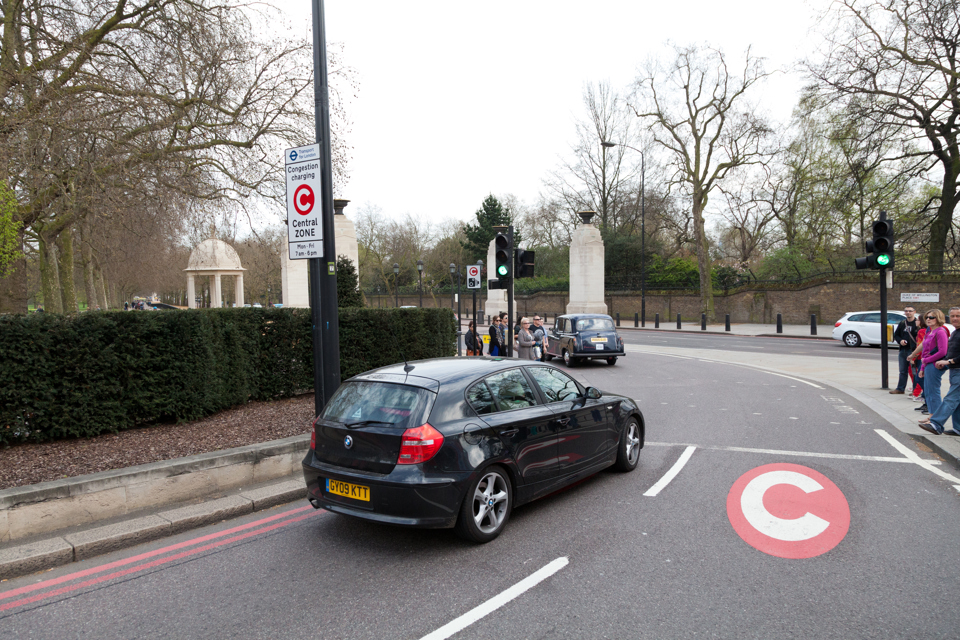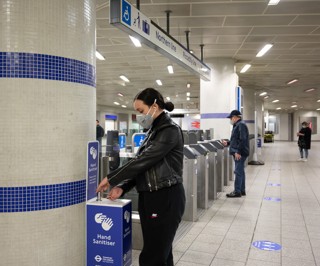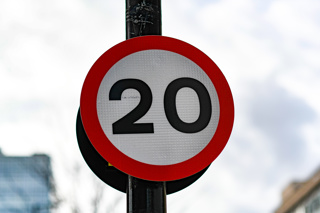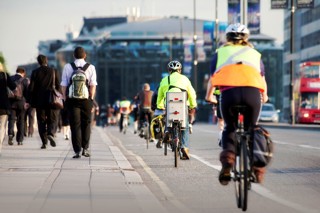Transport for London (TfL) is launching a consultation on the congestion charge, which could reduce the hours of operation.
They were extended in June 2020 when the Government had to bail out TfL after a financial crisis caused by the onset of the pandemic.
The operational hours of the charge were extended to include evenings and weekends, and the charge was increased from £11.50 to £15.
The consultation is seeking views on the future operation of the congestion charge, with the main proposals including no charges in the evenings to support London’s recovery, operating between 12-6pm on weekends and retaining the current charge level of £15.
The proposed new weekend charging hours are targeted at reducing congestion at the busiest times, says TfL.
Weekend car and private hire traffic before the pandemic was higher than during the week and made up 70% of traffic in the charging zone on a Saturday and Sunday.
If the proposed new weekend hours are brought in it is estimated there will be an increase in sustainable travel compared to before the pandemic, with around 8,000 new public transport trips and 3,000 walking and cycling trips each day on the weekend, it claims.
The proposal to stop the congestion charge at 6pm on weekdays is in line with the pre-pandemic hours, rather than the current 10pm finish time.
Evening traffic data will be kept under review, given that weekday travel patterns in particular remain uncertain, says TfL.
Following feedback from those living in central London, the plans include opening up the 90% residents’ discount to new applicants. The discount has been closed to new applicants since August 1, 2020.
Other proposals include: no charge between Christmas Day and New Year’s Day inclusive; the charge to be in operation on bank holidays from 12-6pm; and being able to pay up to three days after travel.
TfL is also consulting on retaining recently expanded reimbursement schemes for NHS patients, care workers, local councils and charities during epidemics and pandemics.
The pre-pandemic NHS staff and patient reimbursement arrangements will continue.
The Mayor of London, Sadiq Khan, said: “As we look to the future it’s vital the charge strikes the right balance between supporting London’s economic recovery and helping ensure it is a green and sustainable one.
“These proposals support the capital’s culture, hospitality and night-time businesses which have struggled so much, as well as encouraging people to walk, cycle and use public transport.
“We must not replace one public health crisis with another due to filthy polluted air, and our measures to create more space for walking and cycling have already had a huge impact. I urge Londoners to have their say and take part in the consultation.”
It is proposed that the discount for using AutoPay will be removed and the current £17.50 charge for paying three days after travel will be retained. The ability of residents to pay for consecutive days online and via the app will also be removed, following the widespread take-up of AutoPay.
Other discounts and exemptions, including the Blue Badge Discount and Cleaner Vehicle Discount, are unaffected by the new proposals.
If they are agreed following the consultation, the changes to hours will take place on February 28, 2022. Other proposals will be implemented immediately after a mayoral decision on the changes.
Natalie Chapman, Logistics UK’s head of policy in the south, welcomed the proposal to revert the operational hours of the congestion charge back to the original weekday timings in place before the Covid-19 pandemic.
"Logistics UK has long campaigned for flexibility surrounding delivery hours to encourage and enable businesses to carry out their deliveries at less congested times to reduce emissions, improve the safety of vulnerable road users and increase operational efficiency, she said. Moving back to the original timings provides additional flexibility to retime deliveries and is supported by our members.
"However, Logistics UK opposes the proposal to retain the higher £15 charge and weekend charging, which simply amounts to an additional tax for logistics businesses who currently have little alternative but to use lorries and vans to keep London stocked with all the goods the population needs.”
Nick Bowes, chief executive of the Centre for London, labelled the congestion charge as being an "ageing and clunky technology".
“When it was first introduced, the congestion charge was world-leading, but its effectiveness has diminished with the pace of growth in London and changing travel patterns," added Bowes.
"As a matter of urgency, Transport for London should make the most of new technology and develop a simpler, smarter and fairer system of road user charging in the capital.
"It will take bold political leadership but, done properly, a smart road user charging scheme would improve air quality, promote active travel and reduce congestion, and play a key role in filling the hole in Transport for London's budget."
The consultation closes on October 6, 2021. To respond, visit : tfl.gov.uk/ccyourview
























Login to comment
Comments
No comments have been made yet.